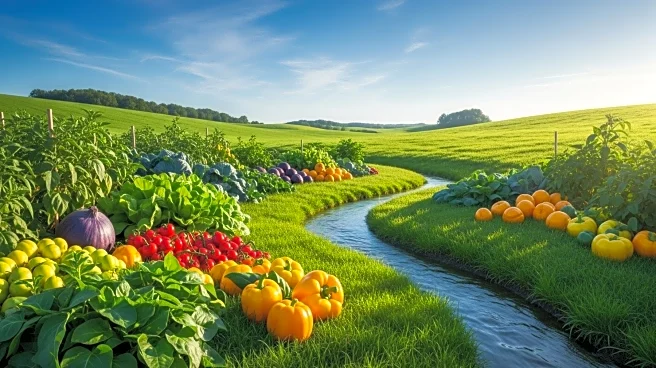What is the story about?
What's Happening?
Orizon Agriculture, a South African company, is advocating for regenerative agriculture (RA) as a strategic alternative to conventional farming. RA focuses on rebuilding soil health and functioning to support long-term productivity, profitability, and environmental resilience. The approach emphasizes minimal disturbance, soil cover, living roots, high species diversity, and livestock integration. Orizon assists farmers in monetizing soil carbon sequestration through international carbon credit registries, providing financial incentives for adopting RA practices. The initiative aims to deliver substantial environmental and economic returns over time.
Why It's Important?
Regenerative agriculture offers a sustainable solution to the environmental challenges posed by conventional farming. By improving soil health and reducing dependence on external inputs, RA can enhance agricultural productivity and resilience against climate change. The financial incentives provided through carbon credits can encourage more farmers to adopt these practices, potentially leading to widespread environmental benefits. This approach aligns with global efforts to reduce carbon emissions and promote sustainable land management, contributing to the fight against climate change.
What's Next?
Orizon plans to continue working closely with family-operated commercial farms and agricultural consultants to ensure the technical feasibility and financial sustainability of RA practices. The company aims to expand its network of farmers participating in carbon credit programs, further promoting the adoption of regenerative agriculture. As more farmers transition to RA, the potential for significant environmental and economic benefits increases, supporting global sustainability goals.
Beyond the Headlines
The shift towards regenerative agriculture represents a broader movement in the agricultural industry towards sustainability and environmental stewardship. By prioritizing soil health and biodiversity, RA can contribute to long-term ecological balance and food security. The integration of livestock into cropping systems also highlights the interconnectedness of agricultural practices and their impact on the environment.

















